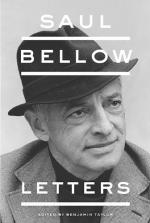|
This section contains 1,234 words (approx. 5 pages at 300 words per page) |

|
As long as Bellow gave us fictional richness, one would have had to be stern indeed to resist his charm merely because he gave away, every now and then, that he too found himself charming, like a hypnotist who puts himself along with his subjects into a trance. But what happens when the fictional juices run out, when a novelist becomes so convinced of his own wisdom, his grasp of the Big Subjects—Western Civilization, The Modern Condition, The Future of Humanity—that fiction seems too fragile a bark to carry all his intellectual cargo? Well, if he's Tolstoy, he decides that fiction is evil, a trick, and gives away all his money. If he's Solzhenitsyn, he turns himself into a witness to history and an ideologue. If he's Bellow, he veers off into nonfiction (To Jerusalem and Back), autobiography (Humboldt's Gift) and sociopolitical tirades disguised as novels...
|
This section contains 1,234 words (approx. 5 pages at 300 words per page) |

|


